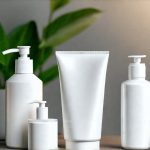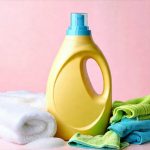Urethral discomfort, often experienced during catheterization, cystoscopy, or even sexual activity, can significantly impact quality of life. Traditional lubricants, while frequently used, aren’t always ideal for urethral application. Many commercially available products contain ingredients that can cause irritation, allergic reactions, or even long-term damage to the delicate urethral tissues. This stems from additives like fragrances, preservatives (such as parabens), and harsh chemicals designed for broader applications but unsuitable for this sensitive area. Finding alternatives that prioritize gentle hydration and minimize potential adverse effects is crucial for those seeking a more comfortable experience.
The urethra’s sensitivity demands a nuanced approach to lubrication. Unlike external skin, the urethral lining lacks robust protective layers, making it highly susceptible to irritation. Furthermore, some individuals experience heightened sensitivity due to pre-existing conditions like interstitial cystitis or urethritis. Therefore, the goal isn’t simply about reducing friction; it’s about finding a substance that mimics the natural hydration of the urethra without introducing harmful components. This article will explore viable natural lubricant substitutes and discuss considerations for their safe and effective use, always emphasizing the importance of consulting with a healthcare professional. You can learn more about supporting your overall urological health through mindful dietary choices, such as exploring natural foods that soothe urinary discomfort.
The Search for Gentle Alternatives
The core principle behind urethral comfort during procedures or intimacy is adequate lubrication. However, “adequate” doesn’t equate to simply applying any lubricant. Many standard lubricants are petroleum-based (like Vaseline) or silicone-based, both of which can impede tissue healing and potentially cause blockage if used excessively within the urethra. Water-based lubricants are generally considered safer, but even these often contain additives that can be problematic. This is where exploring natural alternatives becomes paramount. The ideal substitute should offer gentle hydration, minimal irritation potential, and ideally, some inherent soothing properties. Understanding how diet affects your symptoms can also provide relief; consider how diet affects urethral irritation symptoms.
Coconut oil, specifically fractionated coconut oil (which remains liquid at room temperature), has gained popularity as a natural lubricant option. Its relatively inert nature and moisturizing qualities make it appealing. However, caution is still advised; while generally well-tolerated, some individuals can experience allergic reactions to coconut products. Aloe vera gel, another commonly cited alternative, offers soothing properties but must be pure aloe vera without added fragrances or alcohol. These additives are counterproductive and negate the benefits of using a natural substitute. Finally, hyaluronic acid solutions, often used in skincare for their hydrating capabilities, are increasingly being investigated for urethral applications due to their biocompatibility and ability to retain moisture. To further support your urethra, explore natural oils to soothe external urethral irritation.
It’s important to note that even “natural” doesn’t automatically mean “safe for everyone.” Patch testing any new lubricant – applying a small amount to the skin and observing for 24-48 hours for any adverse reaction – is a critical first step before urethral use. Always prioritize products specifically formulated for sensitive areas or medical applications whenever possible. A holistic approach includes considering your daily habits, like those found in minimalist daily habits that improve pelvic comfort.
Considerations for Urethral Lubrication
The method of application matters just as much as the lubricant itself. Over-application, regardless of the substance used, can lead to discomfort and potential complications. A small amount is usually sufficient – the goal isn’t to saturate the urethra but rather to create a smooth gliding surface. During catheterization or cystoscopy, healthcare professionals will typically use a pre-lubricated catheter, but additional lubrication may be necessary for patients with particularly sensitive urethras. In such cases, a small amount of chosen lubricant can be applied directly to the catheter tip before insertion, ensuring it’s evenly distributed and doesn’t drip excessively.
For intimate activities, communication is key. Discussing comfort levels and preferences with your partner ensures a more enjoyable experience and allows for adjustments as needed. Avoid using lubricants that cause burning, itching, or any other form of discomfort – discontinue use immediately if these symptoms arise. Never attempt self-catheterization without proper training from a healthcare professional. Improper technique can lead to urethral trauma and infection. Furthermore, be mindful of the lubricant’s potential impact on condoms; oil-based lubricants can degrade latex condoms, increasing the risk of breakage. Supporting your body with consistent hydration is also key – discover hydration without overload through daily timing.
Finally, maintaining good hydration is often overlooked but plays a significant role in overall urethral health. Adequate fluid intake helps keep the urinary tract flushed and reduces irritation.
Navigating Potential Sensitivities & Allergies
Urethral tissue is exquisitely sensitive, meaning even seemingly innocuous substances can trigger reactions. Identifying potential allergens is crucial before introducing any new lubricant. Common culprits include:
- Fragrances: Artificial fragrances are a leading cause of allergic reactions.
- Preservatives: Parabens and other preservatives can irritate the urethral lining.
- Glycerin: While generally well-tolerated, some individuals experience irritation from glycerin.
- Latex: Found in many medical devices and condoms; avoid if you have a latex allergy.
If you suspect an allergy or sensitivity, discontinue use immediately and consult with your healthcare provider. They may recommend allergy testing to pinpoint the trigger. A history of allergies should always be disclosed to healthcare professionals before any procedure involving urethral lubrication. When selecting a lubricant, opt for products labeled “hypoallergenic” and “fragrance-free,” but remember that these terms aren’t always guarantees – patch testing remains essential.
Hyaluronic Acid: A Promising Option
Hyaluronic acid (HA) is a naturally occurring substance found throughout the body, particularly in connective tissues. It’s renowned for its exceptional water-binding capacity, holding up to 1000 times its weight in moisture. This makes it an attractive alternative for urethral lubrication, as it provides sustained hydration without introducing harsh chemicals. HA solutions used for medical purposes are typically highly purified and biocompatible, minimizing the risk of adverse reactions.
While traditionally associated with skincare, research is emerging that supports HA’s potential benefits for urinary tract health. Its hydrating properties can help soothe irritated tissues and improve urethral comfort during procedures like cystoscopy. However, it’s essential to use a medical-grade hyaluronic acid solution specifically formulated for internal applications. Avoid using cosmetic HA products, as they may contain additives unsuitable for the urethra. Always consult with your healthcare provider before incorporating hyaluronic acid into your routine. For further support in managing urinary health, explore natural timing for daily urethral rest intervals.
When to Seek Professional Guidance
While natural lubricant substitutes can offer relief for some individuals, they are not a substitute for proper medical care. If you experience persistent urethral discomfort, pain during urination, frequent urge to urinate, or any other concerning symptoms, it’s crucial to seek professional guidance. These could be signs of an underlying medical condition that requires treatment.
- Catheterization difficulties: If you consistently struggle with catheter insertion or experience pain during the process, consult your healthcare provider.
- Recurring UTIs: Frequent urinary tract infections may indicate an underlying issue requiring investigation.
- Severe allergic reactions: Immediate medical attention is needed for severe allergic reactions, such as difficulty breathing or swelling of the face.
- Unexplained urethral bleeding: This warrants prompt evaluation by a healthcare professional.
Remember, self-treating can delay diagnosis and potentially worsen your condition. A healthcare provider can accurately assess your symptoms, identify the underlying cause, and recommend appropriate treatment options. They can also provide personalized guidance on selecting the most suitable lubricant for your specific needs and circumstances. To proactively support your urological wellbeing, consider urethral recovery after prolonged sitting.





















